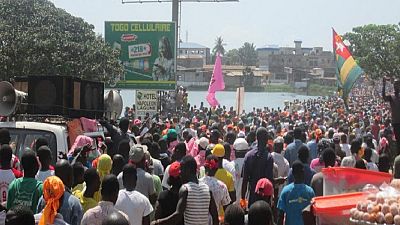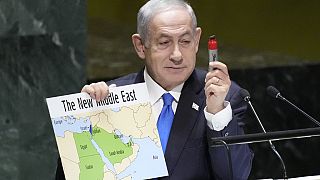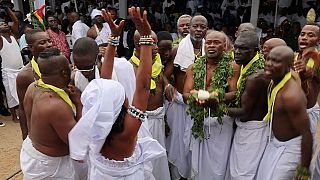Togo
Togolese opposition parties have postponed planned demonstrations against the government and have demanded the release of protesters who were arrested during the August 19 and 20 bloody protest.
The second march planned for August 30 and 31 was postponed on Monday by the six-party opposition coalition CAP 2015 and the Pan-African National Party (PNP) to September 6 and 7.
The parties said in a statement that the reason for the postponement is to get the whole nation involved in the demonstration calling for the revision of the 1992 Constitution and the end to the Gnassingbe dynasty.
#Togo opposition postpone protests to next week starting September 6 in order to get all the major city involved. #Africa
— Farida Nabourema (@Farida_N) August 28, 2017
They also called on the public to attend the hearing of the 27 people arrested during last week’s protest. They will appear before a court in the capital Lome on Tuesday morning.
“We invite all the population to come to the Palace of Justice tomorrow to support and demand their release without conditions,” a statement said.
Tout le monde est invité au palais de justice de Lome demain à 08h pour exiger la liberation de nos compatriotes arrêtés par le régime #Togo pic.twitter.com/imvUApxuaG
— Farida Nabourema (@Farida_N) August 28, 2017
Thousands of Togolese nationals held demonstrations in about half a dozen cities around the world including north of the capital Lome last week where at least seven people were killed in clashes with security forces.
They are calling for the revision of the 1992 Constitution which was modified in 2002 allowing Faure Gnassingbe to run for an unlimited term.
They want the original two five-year term limit be restored, a two-ballot system, reform of the Constitutional Court and the Electoral Commission.
President Faure Gnassingbe has been in power since his father Gnassingbe Eyadema died after spending 38 years in office.
In 2005 when Eyadema died of heart attack, Faure, who was a minister at the time was sworn in as acting president by the military instead of the President of the National Assembly.
He resigned a few days later after pressure from the international and regional communities. Faure stood for the disputed 2005 elections months later and won, leading to deadly protests and displacement of thousands of people.
The elections were described as fraudulent by election observer groups.
The protests in 2005 were met with violence by the security forces leaving over a hundred people killed and several opposition members arrested.
Faure Gnassingbe was re-elected in 2010 and in 2015. His mandate ends in 2020 and it is unclear if he will stand again for re-election.













01:16
Ugandan opposition politician kidnapped and jailed, his wife says
01:08
Mozambique: Opposition leader Venancio Mondlane faces legal action
01:07
Pro-palestinian demonstrators protest in Rio de Janeiro as G20 summit unfolds
01:10
Senegal parliamentary elections: Polls open, over 7 million expected to vote
01:00
Maori MPs stage haka protest against treaty bill
01:03
Senegal’s legislative elections: Prime minister calls for retaliation against “attacks” on supporter